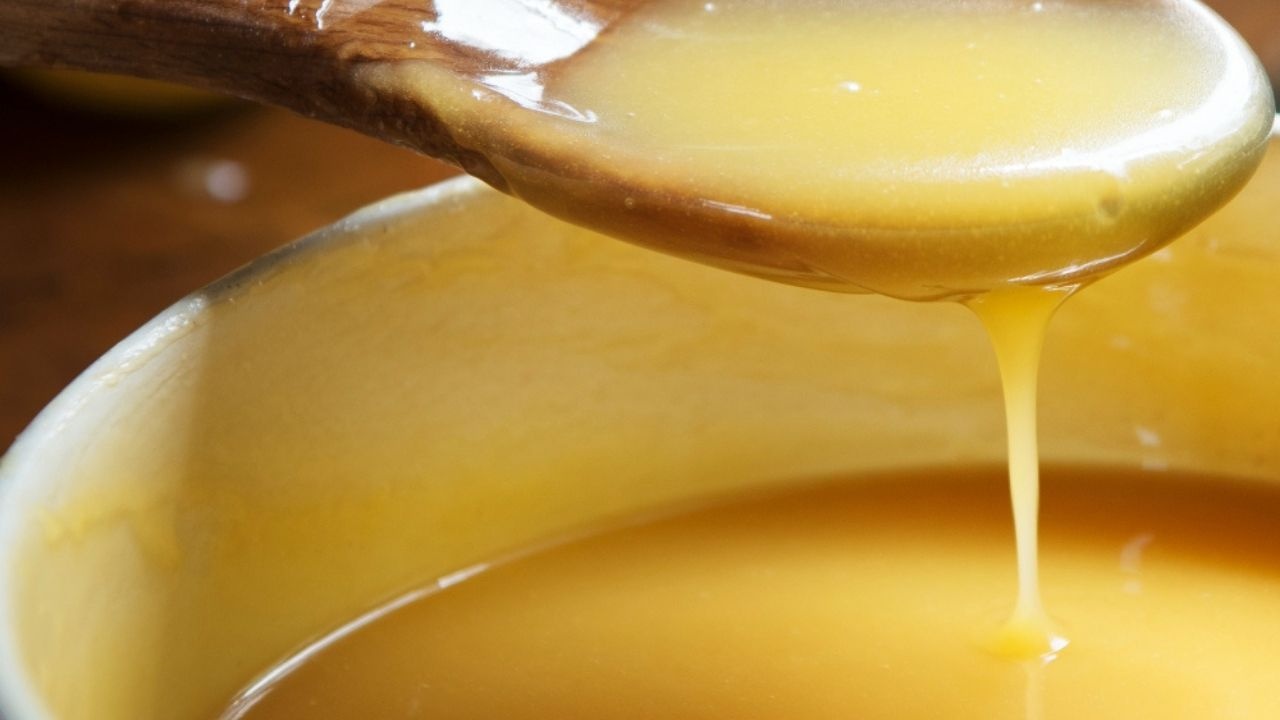
Early Childhood Sugar Intake Linked to Future Hear
Research suggests sugar exposure in the first 1,000 days may increase heart disease risk in adulthoo

Clarified butter, commonly known as ghee, has been a cornerstone in many traditional dishes, particularly in Indian cuisine, for generations. It is created by heating butter to remove milk solids, resulting in pure fat. Praised for its robust taste and healthful properties, many people question whether it is a heart-friendly option. Let's explore the facts surrounding this popular cooking fat.
This cooking fat is predominantly composed of fat. While it contains a blend of saturated and unsaturated fats, it is especially high in saturated fat. Such fats are often linked to increased levels of LDL (bad cholesterol), which can lead to arterial plaque accumulation and heightened cardiovascular risks.
However, it’s essential to recognize that not all fats carry the same risks. Clarified butter also holds vital nutrients like vitamins A, D, E, and K, crucial for immune health, bone maintenance, and overall wellness. Additionally, it features butyrate, a short-chain fatty acid known for its anti-inflammatory benefits.
One of the main concerns surrounding clarified butter is its elevated saturated fat levels. These fats can elevate LDL cholesterol, potentially impacting heart health. Yet, not all saturated fats behave identically. Clarified butter contains butyrate, a fatty acid that could assist in lowering inflammation and aiding cholesterol regulation. Some research indicates it might even help mitigate heart disease risks.
Despite its saturated fat profile, clarified butter also offers monounsaturated (MUFAs) and polyunsaturated fats (PUFAs) praised for their cardiovascular advantages. These fats are known to lower LDL while enhancing HDL cholesterol, counterbalancing potential adverse effects from the saturated fats present.
Inflammation plays a significant role in heart conditions. Some studies suggest that clarified butter’s butyrate content may yield anti-inflammatory results. By combating bodily inflammation, clarified butter could potentially lessen heart disease risks.
In numerous traditional cuisines, clarified butter is enjoyed in moderation, paired with other heart-nurturing foods such as fruits, vegetables, and whole grains. It tends to serve more as a cooking agent than a primary fat source. Balance is crucial—clarified butter should be part of a diet that promotes healthy fat consumption without excess.
While clarified butter contains more saturated fat than some cooking oils, it also boasts a higher smoke point, rendering it less susceptible to harmful breakdown when exposed to heat. This characteristic makes clarified butter a safer choice for high-heat preparations compared to oils such as vegetable or olive oil.
Nevertheless, moderation is vital for heart health. Although clarified butter is advantageous for safe cooking at elevated temperatures, it is essential to use it sparingly while incorporating other heart-healthy fats.
Experts hold differing views on clarified butter. Some suggest it should be limited due to its saturated fat content, while others argue that consuming it moderately won't markedly heighten heart disease risks for most individuals. In fact, research has indicated that substituting clarified butter for processed oils or trans fats may even yield neutral or positively influence heart health.
When introducing clarified butter to your diet, moderation is essential. As with all fats, minimal consumption is advisable. Generally, one to two teaspoons daily is sufficient to enjoy its nutritional advantages without excessive saturated fat intake. Balance this with ample fruits, vegetables, and whole grains, ensuring overall fat intake remains moderate.
If the saturated fat levels of clarified butter raise concerns, yet you wish to relish its flavor, several heart-healthy substitutes are available:
Olive Oil: Abundant in monounsaturated fats, olive oil serves as an outstanding replacement for clarified butter, known for its ability to lower LDL cholesterol and reduce cardiovascular disease risks.
Coconut Oil: While coconut oil also contains saturated fat, its unique fatty acid structure may offer benefits for heart health when consumed moderately.
Avocado Oil: High in monounsaturated fats, avocado oil stands as another excellent heart-healthy alternative to clarified butter, ideal for both cooking and dressing salads.
So, is clarified butter good or bad for your heart? The answer lies in moderation. Clarified butter can provide healthy fats and vital nutrients beneficial in small amounts. While it features saturated fat that may elevate cholesterol levels, it also boasts health advantages like anti-inflammatory properties and gut health improvements.
If you have concerns regarding heart health or cholesterol, consider using clarified butter in moderation within a balanced diet. Incorporate a variety of fruits, vegetables, and whole grains, and utilize heart-friendly oils, such as olive or avocado oil, for cooking. Balance remains key to sustaining optimal heart health, and when consumed cautiously, clarified butter can harmoniously fit into a nutritious diet.
Always consult with a healthcare professional or nutritionist for personalized dietary advice, especially if dealing with underlying health issues like heart disease, high cholesterol, or diabetes. Individual nutritional needs may differ, and a healthcare expert can tailor guidance to your specific health goals.
The content provided in this article is intended for general informational purposes and should not be regarded as medical guidance. Always seek advice from a healthcare professional, registered dietitian, or nutritionist before making substantial dietary modifications, particularly if you have specific health conditions.